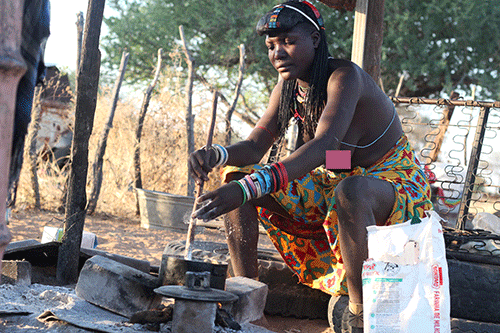Some 56.8% of Namibians are unable to afford a healthy diet. This translates to 1.4 million people in 2020 – and this number is expected to have increased during the last two years.
This is quite an alarming figure, considering the country’s population is about 2.5 million people.
These startling figures were recently shared by the Food and Agriculture Organisation (FAO) of the United Nations in its publication, titled ‘The State of Food Security and Nutrition in the World’.
The FAO pointed out that challenges to end hunger, food insecurity and all forms of malnutrition keep growing.
This is as the Covid-19 pandemic highlighted fragilities in many agri-food systems and inequalities in societies, further driving increases in world hunger and severe food insecurity.
According to the report, the most recent evidence available suggests the number of people unable to afford a healthy diet around the world rose by 112 million to almost 3.1 billion, reflecting the impact of rising consumer food prices during the pandemic.
It added the ongoing Russia-Ukraine conflict continues to disrupt supply chains and is further affecting the prices of grain, fertiliser and energy.
In the first half of 2022, this resulted in further food price increases.
At the same time, more frequent and severe extreme climate events are disrupting supply chains, especially in low-income countries.
With Namibia not being spared, the country’s largest grain-processor Namib Mills already confirmed an increase during April for wheat flour, pasta, bread, rice, maize meal, instant porridge and sugar.
During the past five years, Namibia imported most of its wheat requirements from Russia. Between them, Ukraine and Russia produce roughly 20% to 30% of all corn, maize and wheat that is consumed around the world. The ongoing conflict between Russia and Ukraine has now amplified already high food and energy costs.
The report further suggests that if governments repurpose resources to prioritise food for consumers and to incentivise sustainable production, supply and consumption of nutritious foods, this would help make healthy diets less costly and more affordable for all.
“Reforms to repurpose support to food and agriculture must also be accompanied by policies that promote shifts in consumer behaviours along with social protection policies to mitigate unintended consequences of reforms for vulnerable populations. Finally, these reforms must be multisectoral, encompassing health, environment, transport and energy policies,” it explained.
To overcome rampant poverty in Namibia, the World Bank, in its overview earlier this year, advised the implementation of crucial structural policy reforms it said will be a prerequisite to raising domestic growth potential.
This is after the bank’s overview indicated that some 1.6 million Namibians live in poverty.
According to the World Bank, these structural reforms are essential measures to ultimately change the fabric of an economy, including the institutional and regulatory framework in which businesses and people operate.
The structural reforms, said the World Bank, are designed to ensure the Namibian economy is fit and better able to realise its growth potential in a balanced way.
This advice from the international financial institution was offered after an analysis of the effects of Covid-19 on the domestic economy.
– mndjavera@nepc.com.na


